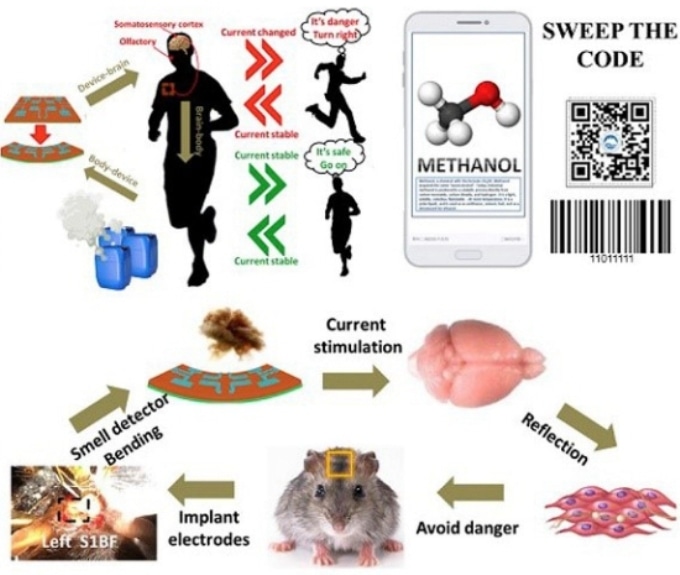Jul 29 2019
An artificial olfactory system based on a self-powered nano-generator has been built by Prof. ZHAN Yang’s team at the Shenzhen Institutes of Advanced Technology (SIAT) of the Chinese Academy of Sciences, together with colleagues at the University of Electronic Science and Technology of China.
 The signal transmitted into mouse brain can participate in mouse perception and act as the brain stimulator. (Image credit: Prof. ZHAN Yang)
The signal transmitted into mouse brain can participate in mouse perception and act as the brain stimulator. (Image credit: Prof. ZHAN Yang)
The device, which can detect a variety of odor molecules and identify different odors, has been demonstrated in vivo in animal models. The research titled “An artificial triboelectricity-brain-behavior closed loop for intelligent olfactory substitution” has been reported in Nano Energy.
For several species, odor processing is imperative. Certain olfactory receptors present on the neurons play a role in odor recognition. These distinct olfactory receptors create a patterned distribution.
Drawing inspiration from the biological receptors, the groups collaborated on devising an artificial olfactory system. The groups constructed a self-power device that can code and distinguish between different odorant molecules through nano-fabrication on the soft materials and unique alignment of material structures.
This device has been linked to the mouse brain to show that the olfactory signals can generate correct neural stimulation. When the self-powered device produced the electric currents, the mouse exhibited behavioral motion variations.
This research that draws inspiration from the biological olfactory system offers insights into the new design of brain-machine interface and neural stimulation.